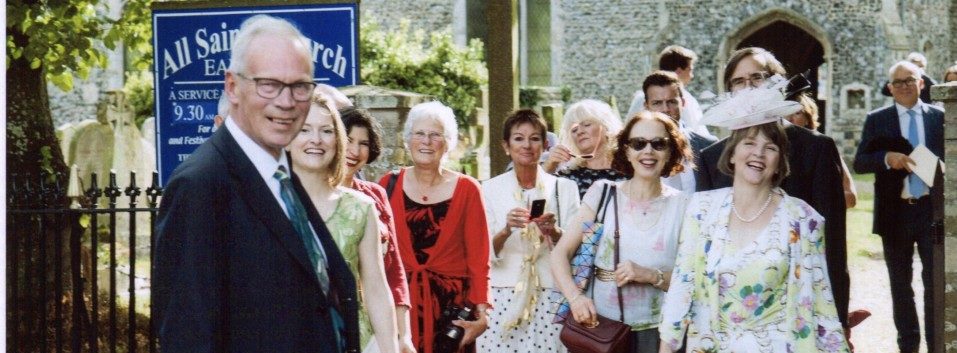Power-boat racing must have been my father’s main activity during the years after he left Oxford. He would have raced as an amateur, but this would have referred to his non-professional status, not his level of ability or commitment. Once he grew too old for the sport he would probably returned to Oxford for an academic career.
The war stopped all that of course, and he entered the army. He was very short-sighted and therefore did not pass the medical tests for combat duty – not to be trusted with a loaded weapon, it seems. He therefore went into the Medical Corps. I don’t think he was posted to Europe at all, but he was, at various times, in Nigeria, India and Burma. He was promoted to Sergeant Major.
I know very little about his army days, he never mentioned them – all I remember is my mother telling me that he discovered at one point that he was being underpaid by a trifling amount, claimed the extra and was turned down. In protest, he grew a moustache (yes, I know!) and declared he would not shave his upper lip until the matter was put right. It was, in the end, and he received his back pay. This odd episode – he didn’t care about the money as such, only the principle – demonstrates something about his character that I can see in Al, who is incredibly easy-going almost all the time, usually laughs off incompetence, but occasionally becomes incredibly stubborn if he is right, but treated dismissively.
He had visited Germany regularly to race in the 30s and saw at first hand the political climate there. However, it was a relief to him that he was not allowed to fight and was in the business of saving lives and not taking them. He believed that the dropping of the atomic bombs saved his life – he had been about to go to the Far East and was sure that would mean his death at the hands of the Japanese.
He returned to England weighing eight-and-a-half stone – he was not tall; about five foot eight; but that was still incredibly thin. I’m not sure in what way he had been ill – he certainly was the only person in his platoon who was never ill in India, which he said was because he drank tea black and didn’t risk the milk. I suppose that others drank their tea in the English manner, with cold milk added, rather than boiled with the tea as chai. My sophisticated Madras friends add the milk to the tea at the table, but the milk has been boiled. I drink tea black myself usually, but I love roadside chai.
In the meantime, the Major, in Lowestoft, was still Mayor – he served thirteen years in total, including all the war years. Lowestoft was bombed heavily and, it was said, ‘he never missed a bomb’ – that is, he visited every location to help both practically and with sympathy and support. He was a burly man with dark hair and an auburn beard and moustache and his figure and booming voice were well known in the district.
And so, in 1946, Malcolm came home. “Glad to see you, my boy” said his father. “You’ll be wanting a job. I’ve got a hotel in Weymouth. Manager just upped and gone and left me in the lurch. You’d better go down and take over as managing director.”

Oh to have been there in the 30’s and witnessed all that turmoil..and the lifestyle..fantastic!
He sounds a remarkable person.
Isn’t it odd to see family traits pop up in the next generation…I already see things in my boys.
Squiff has a deeply ingrained sense of justice…he’s normally a pliable child and well-mannered…but let him be the object of unfairness or injustice and he comes out fighting. I hope to see that spread to injustice to other people to – not just himself. And he is just like my Dad in that regard.
oh – black tea? Ew!
My elder son is like my father and my younger son is like his father.
Sorry, if the tea is stewed I will take milk, but prefer it weak and black. And coffee strong and black.
Yes – I take my coffee strong and black too. I used to have it milky but when I met Alfie he was utterly broke and had, in his kitchen, instant coffee, sugar, brown bread and margerine. So that’s we had to eat and drink whenever I went there. And I got to love black coffee.